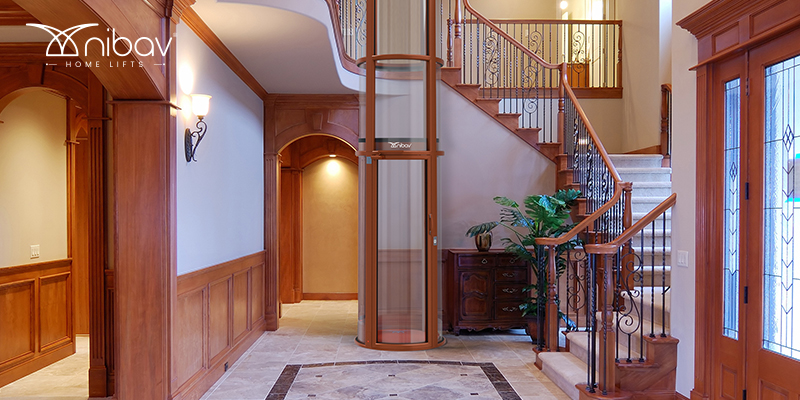When considering home mobility solutions, the choice between wheelchair home lifts and residential elevators is pivotal. In 2024, advancements in technology and design offer a range of options tailored to enhance accessibility, convenience, and safety. This comprehensive comparison will help you understand the differences between wheelchair home lifts and residential elevators, guiding you to make an informed decision that best suits your needs.
Understanding Wheelchair Home Lifts
What Are Wheelchair Home Lifts?
Wheelchair home lifts, also known as platform lifts, are specifically designed to provide easy access for wheelchair users. These lifts are installed in homes to bridge the gap between different levels, offering a practical solution for individuals with mobility challenges. Unlike traditional elevators, wheelchair lifts are typically more compact and less invasive, making them ideal for residential settings where space may be limited.

Key Features of Wheelchair Home Lifts
- Compact Design: Wheelchair lifts are designed to fit into smaller spaces, often requiring less structural modification compared to residential elevators.
- Accessibility: They provide a smooth, level entry for wheelchairs and other mobility aids, making them an excellent choice for homes where accessibility is a priority.
- Cost-Effective: Generally, wheelchair home lifts are more affordable than residential elevators due to their simpler design and installation requirements.
- Ease of Use: Equipped with user-friendly controls and safety features, these lifts ensure a straightforward and safe user experience.
Pros and Cons
Pros:
- Space Efficiency: Requires less space and installation effort.
- Affordability: Lower cost compared to residential elevators.
- Accessibility: Easy access for wheelchairs and mobility aids.
Cons:
- Limited Capacity: Typically supports fewer passengers and less weight compared to residential elevators.
- Design Options: Fewer customization options compared to residential elevators.
Exploring Residential Elevators
What Are Residential Elevators?
Residential elevators are designed to transport passengers between floors in a home, providing a luxurious and convenient mobility solution. These elevators come in various styles and configurations, including traditional hydraulic and modern pneumatic systems. They are often chosen for their ability to blend seamlessly into a home’s design while offering significant convenience and increased property value.
Key Features of Residential Elevators
- Variety of Designs: Available in numerous styles and finishes, residential elevators can be customized to match the aesthetics of your home.
- Increased Capacity: Typically accommodates multiple passengers and can handle heavier loads, making them suitable for larger families or those needing extra space.
- Enhanced Comfort: Provides a smooth, comfortable ride with advanced features such as automatic doors, lighting, and climate control.
- Value Addition: Adds significant value to your property, enhancing its appeal and functionality.
Pros and Cons
Pros:
- Luxury and Comfort: Offers a high level of comfort and can be customized to suit personal preferences.
- Higher Capacity: Can transport more passengers and heavier loads.
- Property Value: Increases the market value of your home.
Cons:
- Higher Cost: Generally more expensive to purchase and install.
- Space Requirements: Requires more space and structural modifications compared to wheelchair lifts.
Key Differences Between Wheelchair Home Lifts and Residential Elevators
1. Purpose and Functionality
- Wheelchair Home Lifts: Primarily designed for accessibility, focusing on enabling wheelchair users to move between floors. Their primary function is to provide ease of access.
- Residential Elevators: Intended for overall convenience and luxury, capable of transporting multiple passengers and providing a high level of comfort and design flexibility.
2. Design and Installation
- Wheelchair Home Lifts: Compact and less invasive, often requiring minimal structural changes. Suitable for homes with limited space.
- Residential Elevators: Larger and more complex, requiring significant space and structural modifications. Offers a wide range of design options.
3. Cost
- Wheelchair Home Lifts: Generally more affordable due to their simpler design and installation process.
- Residential Elevators: Higher cost due to advanced features, customization options, and installation requirements.
4. Capacity and Load
- Wheelchair Home Lifts: Limited capacity, typically designed to accommodate one wheelchair and its user.
- Residential Elevators: Higher capacity, capable of transporting multiple passengers and heavier loads.
5. Customization and Aesthetics
- Wheelchair Home Lifts: Fewer customization options, focusing more on functionality than aesthetics.
- Residential Elevators: Extensive customization options, allowing integration with home décor and personal preferences.
Making the Right Choice
When choosing between a wheelchair home lift and a residential elevator, consider the following factors:
- Budget: Determine your budget for the installation and maintenance of the lift or elevator.
- Space: Assess the available space in your home and the extent of structural modifications needed.
- Capacity Needs: Evaluate how many passengers or how much weight needs to be accommodated.
- Aesthetic Preferences: Decide if you want a solution that blends seamlessly with your home’s design or if functionality is your primary concern.
Conclusion
Both wheelchair home lifts and residential elevators offer unique benefits tailored to different needs and preferences. Wheelchair home lifts provide an affordable and accessible solution for mobility, while residential elevators offer luxury, higher capacity, and increased property value. By considering your specific requirements and preferences, you can make an informed decision that enhances your home’s functionality and accessibility.
For more personalized advice and solutions, contact Nibav Home Lifts, where we offer expert guidance to help you choose the perfect mobility solution for your home. Explore our range of products and discover how we can enhance your living space with innovative and reliable lift systems.
